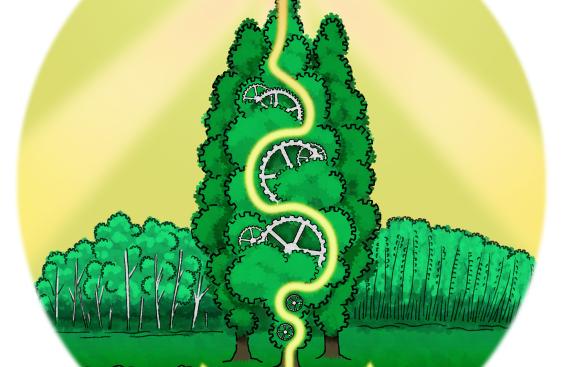Scope
With the increasing demand for energy and rising petrol-based fuel costs, the development of renewable liquid biofuels derived from cellulosic biomass is a strategic priority for the European Union, USA and Canada. Liquid biofuels offer an important alternative to reduce dependence on fossil fuels, to reduce greenhouse gas emissions and to assist rural and agricultural development. In their bid to boost the share of biofuels in transport fuel to 10% by 2020, the European Commission and U.S. Department of Energy awarded >100 million € to a series of research projects dedicated to 2nd generation bioenergy feedstocks.
Trees are attractive energy crops since they thrive in a wide range of habitats and can be grown on marginal lands not suitable for agricultural crops, with reduced input costs and optimised land management. The ultimate goal of the projects that have begun over the last 2–3 years is to develop poplars, pines and eucalypts as second-generation bioenergy crops, suitable for large-scale deployment in areas unlikely to be used for food agricultural production. These genomics-driven projects integrate ambitious systems biology approaches to optimise the amount, composition, and structure of cell walls for biofuel production and to develop novel tree genotypes with enhanced growth traits under low-input environments.
The 26th NPS will provide a platform for brainstorming and discussions of the most recent systems biology applications aiming to deliver tailored sustainable tree lignocellulosic biomass for bioethanol.
Abstract book
Download the 26th NPS abstract book
26th New Phytologist Symposium meeting report: Bioenergy from trees by Joshua R. Herr
Read the Feature issue of New Phytologist on Bioenergy Trees (April 2012)
Organising committee
Francis Martin, INRA-Nancy, France
Michele Morgante, Udine University, Italy
Andrea Polle, University of Göttingen, Germany
Steve Strauss, Oregon State University, USA
Gail Taylor, University of Southampton, UK
Jerry Tuskan, Oak Ridge National Laboratory, USA


